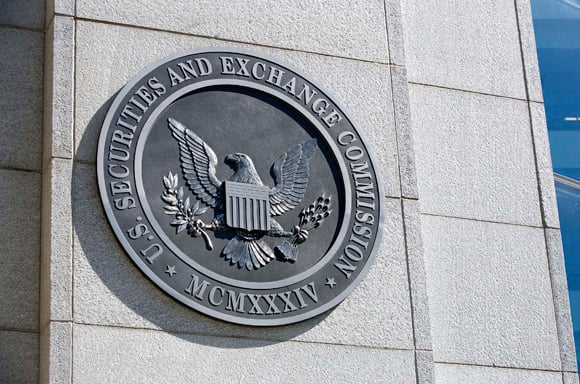The SEC is preparing sanctions against Felix Investments LLC over trading of private-company shares, the first action to emerge from a broad investigation of transactions involving non-public startups.
The U.S. Securities and Exchange Commission is preparing sanctions against Felix Investments LLC over trading of private-company shares, the first action to emerge from a broad investigation of transactions involving non-public startups, two people with knowledge of the matter said.
The top U.S. securities regulator, which has been investigating the trading of equity in closely held companies for more than a year, will also take action regarding SharesPost Inc., a marketplace for trading equity in closely held startups, said two people, who asked not to be identified because the moves haven't been announced.
The SEC is probing whether the trading leaves investors open to fraud because closely held firms aren't required to disclose key figures such as revenue, cash flow and debt obligations, and frequently carry restrictions, including on share sales. New York-based Felix Investments creates pools through which investors can purchase shares of non-public companies, including Facebook Inc. and Twitter Inc., while SharesPost helps match buyers and sellers of the equities.
The moves would mark the first action by the SEC concerning the trading of stock in non-public startups including Facebook, which has filed to sell shares in the largest-ever technology initial public offering. Demand for some closely held technology companies has surged in recent years, with secondary-market transactions reaching $9.3 billion in 2011 from $4.6 billion a year earlier, according to Nyppex LLC.
Wells Notice
Frank Mazzola, principal and chief executive officer of New York-based Felix Investments, received a so-called Wells notice from the SEC in August, saying investigators intended to sanction him for violating securities laws in “certain sales activities in 2010,” according to his public broker records.
The SEC is likely to impose a fine on Felix Investments, two of the people said.
Mazzola said in the filing that he acted appropriately and “will aggressively defend himself.”
Mazzola declined to comment, as did Jeremiah Hall, a spokesman for San Bruno, California-based SharesPost. Florence Harmon, a spokeswoman for the SEC in Washington, declined to comment.
Mazzola also received a similar Wells notice in September from the Financial Industry Regulatory Authority, the brokerage- industry funded self-regulator, according to the records.
Michelle Ong, a spokeswoman for FINRA, declined to comment.
Pooled Funds Gain Popularity
As secondary trading has increased, investment firms including Felix have set up pooled funds, letting several wealthy investors to work as a group to buy stakes in venture- backed companies. The pools enabled more people to get shares in popular start-ups without forcing the firm to file public financial disclosures -- a requirement for companies with more than 499 shareholders.
The trend has also spawned new exchanges for unregistered shares, including SharesPost, New York-based SecondMarket Inc., San Mateo, Calif.-based Xpert Financial Inc. and New York-based Gate Technologies LLC.
SecondMarket and SharesPost said last year that the SEC had requested information from them about the so-called pre-initial public offering pooled investment funds.
Trading on those exchanges is reserved for so-called accredited investors -- people with at least $1 million in assets or $200,000 in annual income -- and a basic premise of securities laws is that they are sophisticated enough to fend for themselves without regulators' protection.
Goldman Sachs' Facebook Deal
The business gained attention last year after Goldman Sachs Group Inc. halted a plan to offer as much as $1.5 billion in Facebook equity to wealthy U.S. investors. Goldman Sachs said in January 2011 it pulled the offer because of concern that “immense media attention” could violate SEC rules limiting marketing of private securities. Goldman Sachs instead restricted the offer to non-U.S. investors.
Facebook filed in February for its IPO.
Secondary markets have featured for more than a year in congressional hearings about whether regulatory requirements imposed by the 2002 Sarbanes-Oxley Act and the 2010 Dodd-Frank Act have made accessing public markets more expensive. The SEC has said it is reviewing whether its rules are too restrictive, while cautioning that a loosening of regulatory requirements could lead to investor harm.
--Bloomberg News--







